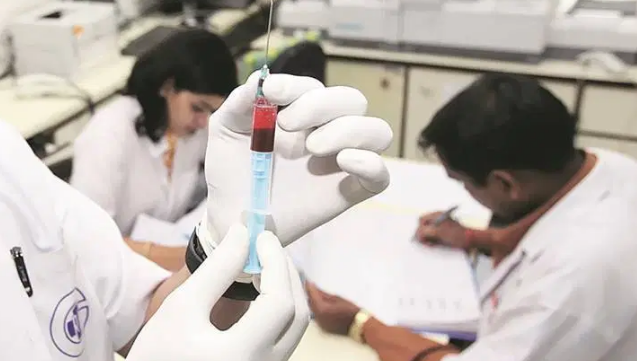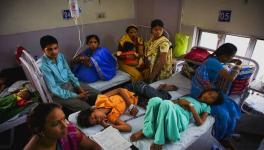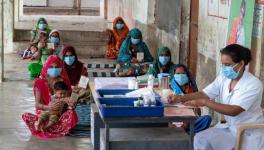New Medical Colleges to Be Set up, Is That Enough?

Image Courtesy: The Indian Express
The Central government on Wednesday announced opening of 75 medical colleges across the country under third phase of the centrally sponsored scheme for “establishment of new medical colleges attached with existing district/referral hospitals”. The move, as the government statement reads, intends to create additional 15,700 seats taking the total number of seats to above 1 lakh. The medical colleges will be set up in under-served areas having no such institutes and will be attached with district hospitals having at least 200 beds.
In his reply to a question in Lok Sabha, Minister of Health and Family Welfare Harsh Vardhan had said that under Phase-I of the scheme, 58 districts in 20 states/UT have been identified and approved; whereas, 24 new medical colleges in eight states have been identified under phase II. The announcement of new medical colleges came after years of struggle for investment in public health as India continues to fare poorly on universal indicators. Consider this. The registration data from professional councils indicates that the availability of one doctor per 1,953 persons, which is far less than that recommended WHO norms of one doctor per 1,000 persons. A similar scenario is visible in other indices too. So, the question remains, can the move resolve India's crisis in Public Health?
An analysis of functioning of medical colleges in India suggests that the real challenge lies in imparting education and training to the doctors in these colleges. A parliamentary committee report related to health and family welfare found glaring lacunae in functioning of six All India Institute of Medical Science (AIIMS) at Bhopal, Raipur, Patna, Jodhpur, Rishikesh and Bhubneshwar even when they were established in 2013. The report found that the institutes were not meeting requirements regarding recruitment of faculty and non-faculty staff.
It said: “The Committee is deeply aggrieved at the shortage of faculty and non-faculty staff in all the AIIMS like Institutions. There is a dire need to address this acute shortage as it has a direct impact on the quality of health service and medical education in the Institutes.” Comptroller and Auditor General’s report has also highlighted that in six new AIIMS (Bhopal, Bhubaneswar, Jodhpur, Patna, Raipur and Rishikesh), shortage of faculty posts ranged from 55% to 83%. Similarly, the shortage of non-faculty posts ranged from 77% to 97%.
But what came as a shocker is the committee found that despite establishment of the courses, these institutes could not provide quality education to trainee doctors. It had observed, “The Committee is of the considered view that starting PG courses is irrelevant until and unless the Institute is able to provide quality training under the supervision of full time expert faculties...The Committee is also concerned to note that most of the AIIMS do not have any faculty at the HOD/Professor level from AIIMS Delhi or PGI or JIPMER or any premier National Institute. The experience and expertise of faculty/HOD has an impact on the quality of Medical Graduates. In most of the AIIMS, the faculty lacks any teaching experience from any of the premier Institutes. This raises serious concern about the dilution of the AIIMS Delhi benchmark."
Prof. T Sundararaman, former professor in Health Systems Studies and Health Policy at Tata Institute of Social Sciences, Mumbai has other concerns regarding the announcement. Talking to NewsClick, he said that the announcement must be welcomed, but it must address other issues too. He said, “The opening of these colleges in under-served areas is not new. It was envisioned in five-year plans, then National Health Policy and a separate funding was earmarked in this year's Budget too. But we must ensure that the students from the underprivileged areas get access to the medical education. Why is it important? Because a person from Karnataka would not go to the interiors of Uttar Pradesh. They may go as part of their internship, but they will tend to move back to urban areas. Second, the generation of employment in these areas is important. There could be chances that these doctors may move to corporate hospitals which are already expanding their footprint. And this would be defeating the entire idea."
Also read: NMC Act: Death Knell to Indian Healthcare System?
Get the latest reports & analysis with people's perspective on Protests, movements & deep analytical videos, discussions of the current affairs in your Telegram app. Subscribe to NewsClick's Telegram channel & get Real-Time updates on stories, as they get published on our website.
























